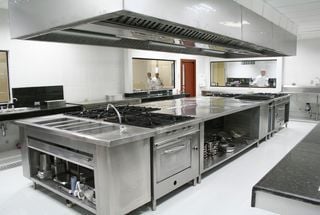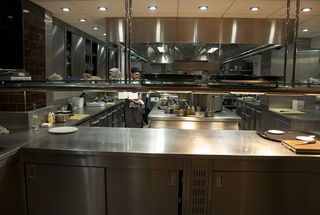Hotel Kitchen Maintenance: The Essentials


One of the most important things in your hotel is the restaurant cooking equipment, as one unexpected failure can ruin a busy day's service. Not to mention the damage a kitchen fire can do to your business. Apart from material damage, the clean-up and inspections might put your business out of service for weeks. Here are some of the best practices, based on the record of insurance companies' expertise in the hotel and restaurant markets.
Clean the vent hood and ducts
Removing built-up grease from the vent hood should be performed at least once every six months. There are certified hood cleaning contractors you can hire. While some kitchens may require more frequent cleaning, for most commercial kitchens, twice a year is the bare minimum. Between the service dates, your staff can wipe down the exterior parts from grease-laden vapour film.
Clean the grease filter
Grease filters collect grease as the grease-laden vapours flow up into the hood, reducing the amount of grease that ends up directly in the duct. While such a filter increases the time span between two cleanings, the filter itself needs cleaning as well. Manufacturers usually recommend that the grease filter is cleaned once a week, but if your kitchen does a lot of heavy grease cooking, the interval can be even shorter. Kitchen staff in many busy hotel kitchens have a habit of cleaning the grease filter nightly, which also significantly reduces the risk of fire.
Inspect the deep fat fryer
It's no secret that a deep fryer is one of the greatest fire hazards in most commercial kitchens, so it needs to be cleaned and maintained according to the manufacturer's manual. Deep fryer cleaning includes routine cleaning of the interior, while the whole unit itself needs to be inspected by a qualified commercial cooking appliance firm at least every twelve months, especially after the fryer has been in service for more than five years. Such an inspection involves checking the operating components that are inaccessible or dangerous to untrained employees.
Test the oven door
Over time and constant use, the seal on your oven door will wear down and make your oven less effective. If you notice damage, tearing or cracking on the seal, make sure to replace it immediately. Heating the oven with a faulty seal not only reduces the baking temperature, but it piles up on the energy bills. Since today's ovens are more complicated, perhaps it's best to leave repairs to a professional, as this Sydney-based oven repair expert, who is dedicated to deliver a friendly and knowledgeable service, even offering a replacement credit if buying a new unit is your best option.
Clean the interior and the burners
Since a hotel kitchen oven is rarely idling, it's important to clean the interior every day. Remove the racks and soak them in an appropriate cleaner for about 10 minutes. Your oven manual should include a list of appropriate cleaners for the model. A failsafe solution is a mixture of water and ammonia. The same mixture can be used to wipe down the interior. Also, scrub the cooktop burners daily, and give the burners and grates a thorough soapy soak at least once a month. This way, you'll be able to remove all the remaining grease and grime.
Maintain the floors
While to an outsider, the kitchen floor bears little significance for successful restaurant operation, it's actually the part that gets more use than any cooking appliance. Improper floor care can lead to slips and injuries that not only bring your kitchen's operation to a halt but leave you short-staffed in the midst of the busy tourist season. Make sure the kitchen floors are cleaned regularly with quality cleaners designed for kitchen floors. Freshly wiped floors need to have proper "slippery floor" signage, while rubber mats can be used in critical areas to improve traction.
Recalibrate the oven thermostat
Hotel kitchens work from dawn to dusk, and such heavy use may cause your oven's thermostat to become de-calibrated from time to time. Apart from showing incorrect temperature, it can also make the cooking less reliable. Make a habit of checking the accuracy of the thermostat by placing an oven thermometer inside and comparing the difference in temperature. If you notice any disparity, consult the oven manual or let a professional recalibrate or replace the faulty thermostat.
An accident or misconduct in your kitchen is capable of putting your entire hotel out of business because the kitchen isn't only the backbone of every hotel, but also its most vulnerable spot. Although a comprehensive list of commercial kitchen maintenance practices would take up many pages, this short list highlights the most critical requirements that keep your hospitality operation running flawlessly.